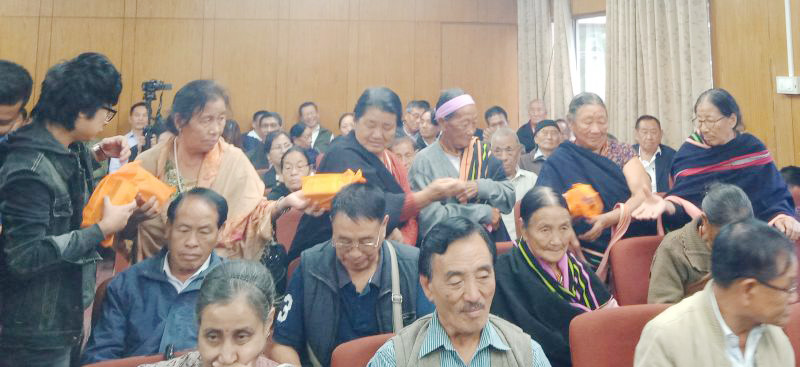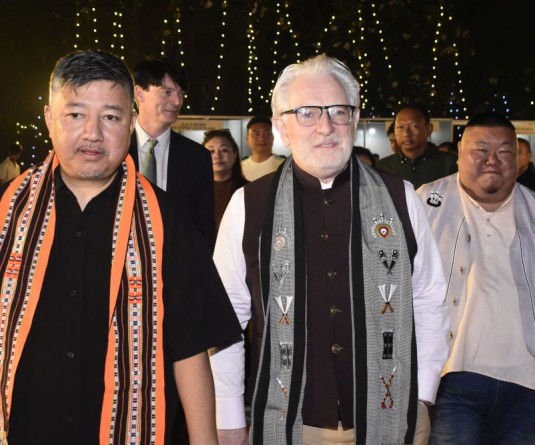Noke calls for effective implementation of Old Age Pension

Senior citizens receive gifts during International Day of Older Persons in Kohima on October 1. (Morung Photo)
Our Correspondent
Kohima | October 1
Nagaland Social Welfare, Home Guards and Civil Defence Advisor, Noke Wangnao today called for effective implementation of Old Age Pension in Nagaland.
As part of showing concern for well being of senior citizens, Old Age Pension scheme was introduced in Nagaland in 1991 during the leadership of Late Vamuzo, the Advisor said.
Speaking at the International Day of Older Persons here at Hotel Japfu under the theme “The journey to age equality” under the aegis of social welfare department, he said that similar scheme was later introduced by other states in the country.
Further, he urged the department to implement the scheme with utmost care and see that misuse of the scheme does not happen in any manner.
Delivering keynote address, KK Sema IAS (retd), President, Senior Citizens’ Association of Nagaland (SCAN) stressed on the need to strengthen the fellowship of senior citizens in the state. He observed that the senior citizens need to have frequent interaction and share ideas and experiences and contribute to the society.
“We have to do our job. We have to give back to our society,” he said and challenged senior citizens to come forward and work together for the betterment of the society.
Further, he invited the senior citizens who attained 60 years to get register with SCAN, adding that possession of identity card will help access to transportation and other facilities and benefits.
‘The journey to age equality’
Speaking on the theme ‘The journey to age equality,’ Social Welfare Director, T Merangtsungba Aier stressed on the need to create friendly environments and make health services easily available for senior citizens.
He also felt on the need to create a separate queue for them in banks, post offices, bills payment counters, airports, railway and bus stations. He stressed on the need to provide day care centre, short stay homes, parks and open spaces for exercise.
Aier said that disparities in old age reflect an accumulated disadvantage characterized by factors such as location, gender, socio-economic status, health, income etc.
Stating that between 2015 and 2030, the number of people aged 60 and over is expected to increase from 901 million to 1.4. billion, he said “trends of ageing and economic inequality interact across generations and rapid population ageing, demographic and societal or structural changes alone can worsen older age inequalities, thereby limiting economic growth and social cohesion.”
Aier called for focus on lifelong learning and proactive and adaptive labour policies and universal health coverage and social protective measures.






